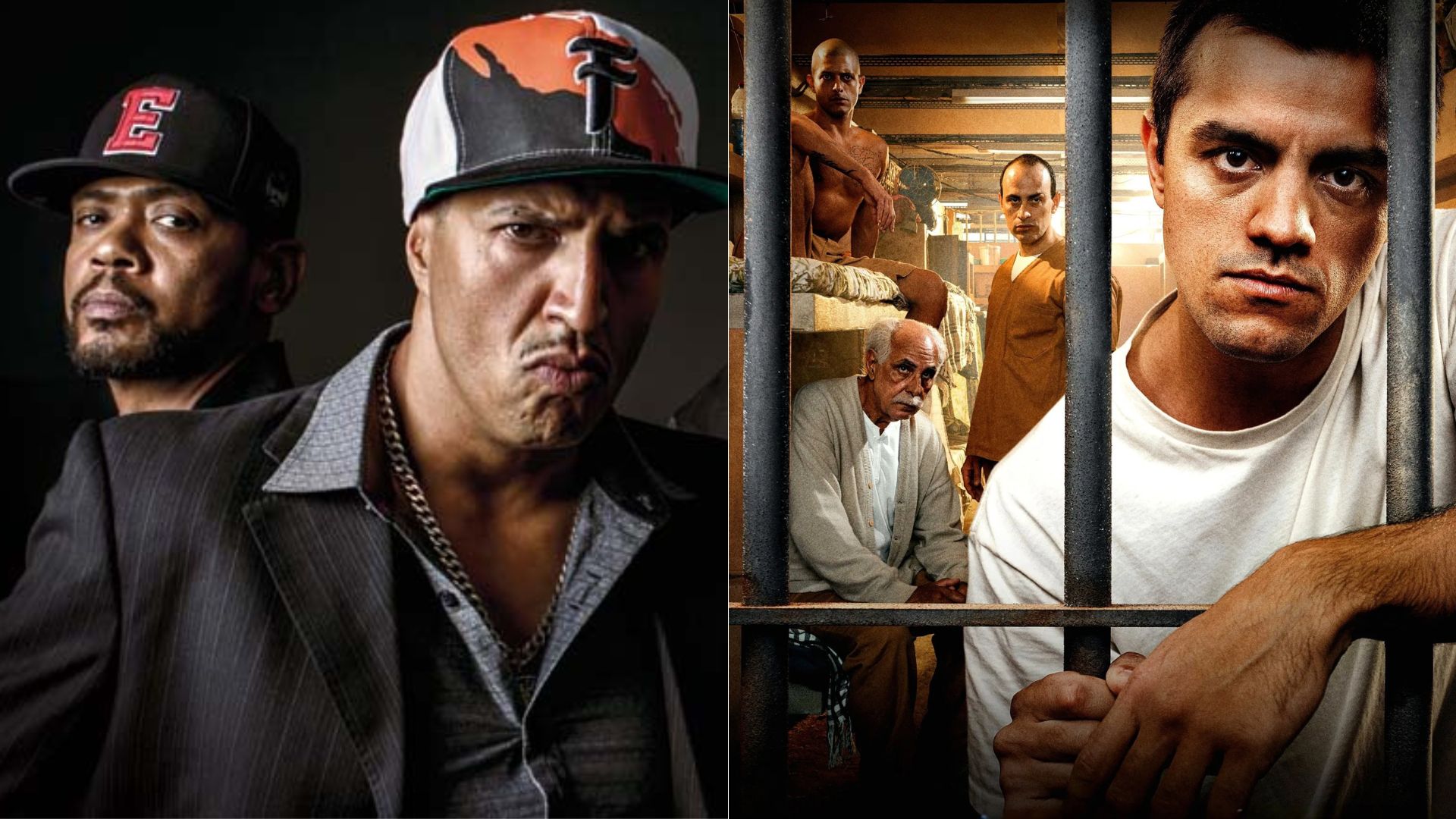Dinâmica is a portrait of the loss of space of Brazilian manufactured goods in global trade; country has been selling more and more goods to the world.
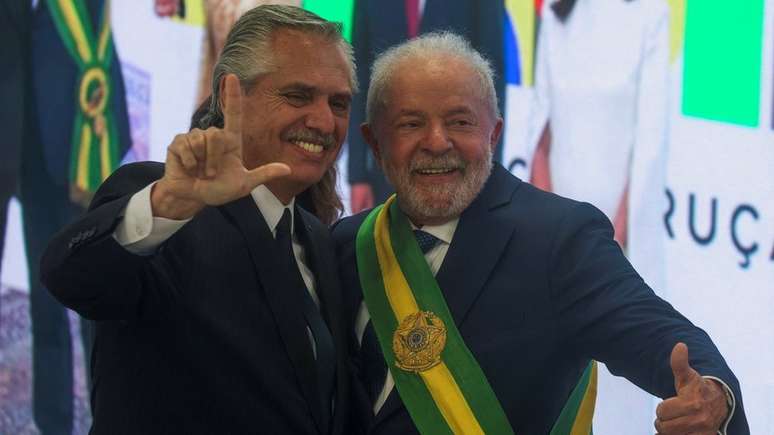
In 2000, 59% of what Brazil sold to the world were industrially manufactured products. In two decades, this participation has dropped to less than half — 28 percent in 2022, according to data compiled by the Brazilian Foreign Trade Association (AEB).
Soybeans, corn, oil, iron ore and meat accounted for about half of everything Brazil shipped to the world last year.
The change in profile of the export basket has ended up messing up the list of main destinations for Brazilian products. Today, Brazil sells more to the Middle East, for example, than to neighboring Argentina, the destination of the first official visit of the third term of President Luiz Inácio Lula da Silva, who landed in Buenos Aires this 22 January.
The reversal is a reflection of the advance of goods in Brazil’s trade relations with the international community. While Argentina is the main destination for manufactured goods produced by Brazilian industry, especially the automotive industry, the Middle East purchases mainly poultry meat (17%), corn (16%), iron ore (14%), soy (11%), sugars and molasses (10%) and beef (5%).
The Dollar and the Common Currency Controversy
One of the main reasons for the loss of space is the long crisis that the neighboring country is going through, assesses José Augusto de Castro, executive president of AEB.
“Argentina has a serious dollar shortage problem,” he said, referring to the low level of foreign exchange reserves, currently at $42.9 billion. By comparison, Brazil, for example, has $324.7 billion in international reserves.
To avoid the outflow of dollars, the Argentine government often imposes restrictions on imports, which directly affect its main trading partners.
One solution to try to increase the flow of trade between Brazil and Argentina would be to negotiate in a currency other than the dollar – hence the idea circulated after the meeting between the Argentine ambassador, Daniel Scioli, and the finance minister, Fernando Haddad , on January 3 in Brasilia, which ended up generating noise.
After the meeting, Scioli spoke of the possibility of creating a common currency for Mercosur. Days later, Haddad chafed when a reporter asked him about the bloc’s possibility of adopting a single currency.
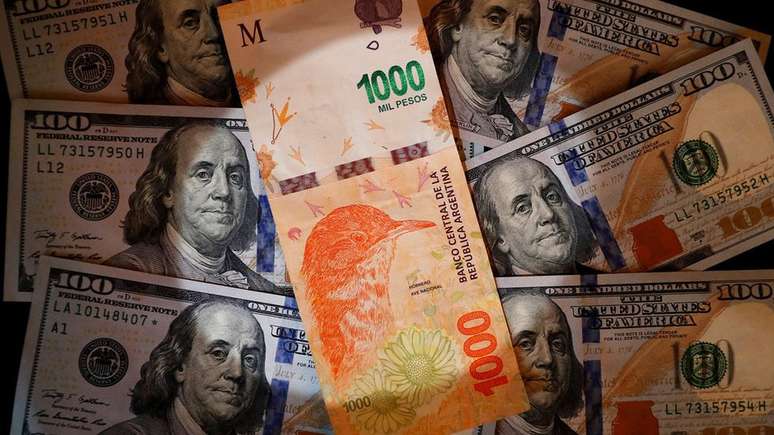
Indeed, the idea would not be to create a single currency (like the euro), but a structural currency that could be used as a compensation mechanism in bilateral exchanges between the two countries, says Welber Barral, a specialist in international trade and founder partner of the consulting firm BMJ.
Remember that Brazil already has a local currency payment system, where Argentina and Uruguay can pay in their respective currencies, but you must make a daily payment in dollars.
“Practically, [com esse sistema] the problem of foreign exchange reserves persists”.
For him, the single currency could be a mechanism to get around the problem, but “there would be a political question to be addressed with Argentina on the risk of default”. Castro, in turn, thinks the idea is difficult to implement.
Argentine president, Bolsonaro and Lula
Lula’s visit will be the first by a Brazilian president to Argentine leader Alberto Fernández.
Jair Bolsonaro (PL) traveled to the country in 2019, when Fernández’s rival Mauricio Macri was still at the Casa Rosada. Since the Frente de Todos – the coalition of Peronist and left-Kirchnerist parties that won the election – took power, he hasn’t been in the region.
The first meeting between the two took place in June 2022, at the Summit of the Americas in Los Angeles.
According to Barral, the distance in the bilateral relationship in the Bolsonaro years has not significantly affected the trade relationship between Brazil and Argentina, which he considers very stable.
The specialist points out, however, that some of the policies of the past management have ended up helping to cool the flow of trade between the two countries, including the interruption of the export financing program by the National Bank for Economic and Social Development (BNDES) . In his estimation, this was a policy that should be revived.
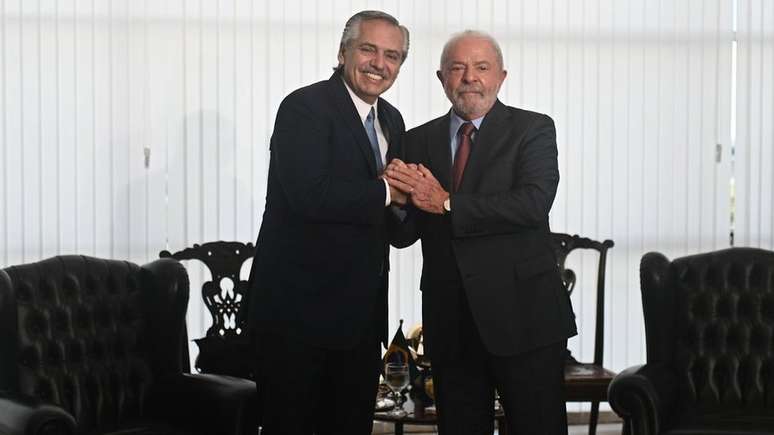
More generally, Barral says that Brazil “has become very isolated internationally in recent years” and now has the opportunity to “regain international prominence, especially considering its neighbours”.
“Argentina will continue to be an important neighbor and Brazil needs to improve its relations with Argentina, so this visit is important.”
The cadres of Argentine Peronism are close to the Workers’ Party (PT). On the night Fernández won the election, October 27, 2019, a large group of PT members attended celebrations in Buenos Aires. Among the militants, members of the party leadership, MPs and former MPs were former Senator and now MP Lindbergh Farias and the current president of the BNDES Aloizio Mercadante.
The Argentine president himself is close to Lula. Still in the electoral campaign, in 2019 he even visited him in prison in Curitiba.
The words of my friend @LulaOficial excite me. As he says in his letter, next to @CFKArgentina we will soon recover our bonds of fraternity and respect. I take this opportunity to reclaim your freedom and to send a warm greeting to all the people of Brazil. #LulaLivre pic.twitter.com/igvKOacOyV
— Alberto Fernandez (@alferdez) October 30, 2019
Record exports to the Middle East
The increase in shipments from Brazil to the Middle East, in turn, is a reflection of the internalization of Brazilian exports.
In recent years, the country has sold more and more basic products, many with a low level of differentiation.
Tamer Mansour, general secretary of the Arab-Brazilian Chamber of Commerce, gives the concrete example of coffee: Brazil sells grain in kind above all to Arab countries, when it could offer, for example, powdered coffee, more expensive and with higher additions value.
“We have chocolate powder, juices, soybean oil, corn oil… in the case of these products, unfortunately, we only export goods to the Arabs,” he comments.
In addition to the food industry, he says, Brazil would also have the potential to sell pharmaceuticals, cosmetics and fashion-related products to the region.
“I think Brazil must distinguish itself a little more, it must understand that this summit of the Arab world, especially from the Gulf, can absorb products with greater added value of Brazilian origin”.
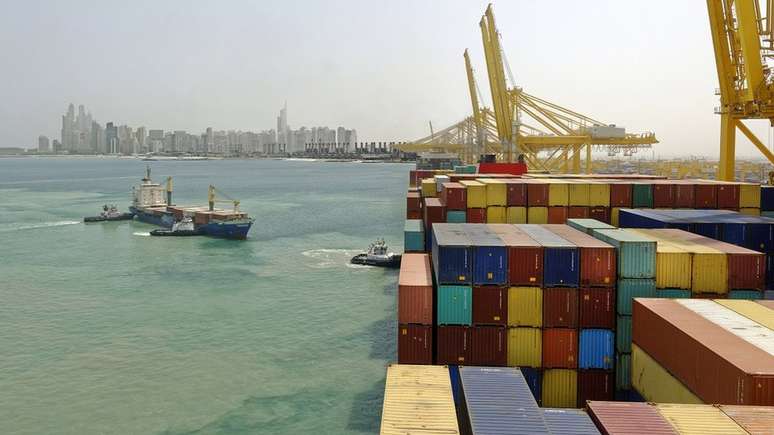
The $17.2 billion that Brazil shipped to the region in 2022 is the highest in the Foreign Trade Secretariat’s time series, which begins in 1997.
The first destination was Iran. Corn and soybeans account for 80% of the $4.3 billion sold to the Persian country. Among the Arabs, the main markets were the United Arab Emirates (US$ 3.3 billion), which has become the hub for the distribution of products for Central Asia, and Saudi Arabia (US$ 2.9 billion).
In Mansour’s assessment, part of the increase in exports to Arab countries is due to the increase in prices of raw materials last year and the Qatar Cup, which have helped to increase the demand for commodities.
The Bolsonaro administration’s relationship with the countries of the region got off to a turbulent start with the proposal, in 2019, to transfer the Brazilian embassy in Israel from Tel Aviv to Jerusalem, a city disputed by Israelis and Palestinians. The government withdrew from the idea and, over time, started to hint more at the countries in the region, especially through the Ministry of Agriculture.
“This caused us a first discomfort. I think the government – especially, at that time, Tereza Cristina (Minister of Agriculture) – managed very well to circumvent the situation, to absorb the importance of the Arab world in agriculture Brazilian”.
Regarding Lula’s third term, Mansour says he believes relations with the region need to be strengthened and mentions the president’s visit to Egypt before taking office, in November, to participate in the UN Conference on climate change (Cop 27).
“It was President Lula who finalized the ASPA Summit [Cúpula América do Sul – Países Árabes, inaugurada em 2005]so this shows how this government should look deeply in Arab countries,” he adds.
+The best content in your email for free. Choose your favorite Terra newsletter. Click here!
Source: Terra
Camila Luna is a writer at Gossipify, where she covers the latest movies and television series. With a passion for all things entertainment, Camila brings her unique perspective to her writing and offers readers an inside look at the industry. Camila is a graduate from the University of California, Los Angeles (UCLA) with a degree in English and is also a avid movie watcher.

